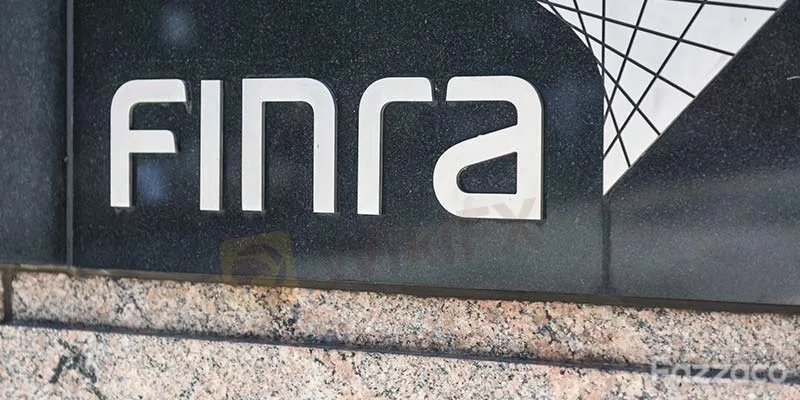简体中文
繁體中文
English
Pусский
日本語
ภาษาไทย
Tiếng Việt
Bahasa Indonesia
Español
हिन्दी
Filippiiniläinen
Français
Deutsch
Português
Türkçe
한국어
العربية
FINRA Hires Law Firm to Review Arbitrator Selection Process
Abstract:FINRA, a government-authorized non-profit entity overseeing the U.S broker-dealers, announced on Feb. 19 that it has hired the Lowenstein Sandler law firm to conduct an independent review of how FINRA Dispute Resolution Services (DRS) complied with its rules, policies and procedures for arbitrator selection in an arbitration proceeding whose award was recently vacated by an Atlanta Superior Court judge.

“We take this matter very seriously. FINRA recognizes the importance of maintaining trust in the system and is committed to ensuring the DRS arbitration forum is operated in a fair and neutral manner,” said FINRA President and CEO Robert Cook. “In keeping with that commitment, FINRA's Audit Committee has engaged an independent, outside party to review how the arbitrator selection process was carried out in this case, and to determine whether any improvements to the process may be warranted. FINRA will make the results of this review public.”
Christopher Gerold, a partner in Lowenstein's Securities Litigation and Corporate Investigations & Integrity Practice Groups, will lead the independent review and report the firm's findings directly to the Audit Committee of FINRA's Board of Governors. Prior to joining Lowenstein in January, Gerold was Chief of the New Jersey Bureau of Securities from 2017-2021 and served as President of the North American Securities Administrators Association.
“We trust Lowenstein's ability to carry out an independent review of the arbitrator selection process administered in this matter and look forward to receiving their findings in the coming months,” said Lance Drummond, FINRA Governor and Chair of the Audit Committee.
DRS administers an arbitration forum to assist in the resolution of disputes involving investors, securities firms and their registered employees. Although securities firms and investment advisers often include mandatory arbitration clauses in their customer account agreements, FINRA rules do not require this practice. The arbitration forum operates in accordance with rules that have been approved by the SEC, after a finding that the rules are in the public interest.
The SEC regularly examines DRS's operations.

Disclaimer:
The views in this article only represent the author's personal views, and do not constitute investment advice on this platform. This platform does not guarantee the accuracy, completeness and timeliness of the information in the article, and will not be liable for any loss caused by the use of or reliance on the information in the article.
Read more

The Ultimate Guide to Automated Forex Trading in 2025
Modern markets are revolutionized by automated trading systems, which now execute 70-85% of all transactions. These advanced automated trading software solutions, commonly called trading robots or Expert Advisors (EAs), leverage algorithmic precision for automatic trading across forex, stocks, and commodities 24/7. By removing emotional interference and executing trades in microseconds, auto forex trading platforms create fair opportunities for all market participants. For those new to automated trading for beginners, these systems provide disciplined, backtested strategies while significantly reducing manual effort.

Will natural disasters have an impact on the forex market?
The forex market is known for its rapid responses to global events, but the influence of natural disasters, such as earthquakes and typhoons, can be less straightforward. While headlines may scream about catastrophic damage and economic disruption, the long-term effects on currency values often depend on a blend of immediate shock and underlying economic fundamentals.

Philippines Deports 29 Indonesians Linked to Online Scam Syndicate in Manila
Online scam groups in the Philippines trick Filipinos into gambling and love scams, from Manila to Bacolod, causing trafficking and pain as police fight back.

Why does your mood hinder you from getting the maximum return from an investment?
Investment decisions are rarely made in a vacuum. Aside from the objective data and market trends, our emotions—and our overall mood—play a crucial role in shaping our financial outcomes. Whether you’re feeling overconfident after a win or anxious after a loss, these emotional states can skew your decision-making process, ultimately affecting your investment returns.
WikiFX Broker
Latest News
How Crypto Trading Transforms FX and CFD Brokerage Industry
UK would not hesitate to retaliate against US tariffs - No 10 sources
FCA Warns Against 10 Unlicensed or Clone Firms
CySEC Warns Against 14 Unlicensed Investment Websites
Top Currency Pairs to Watch for Profit This Week - March 31, 2025
Will natural disasters have an impact on the forex market?
Philippines Deports 29 Indonesians Linked to Online Scam Syndicate in Manila
Navigating the Intersection of Forex Markets, AI Technology, and Fintech
Exposed: Deceptive World of Fake Trading Gurus – Don’t Get Fooled!
AI-Powered Strategies to Improve Profits in Forex Trading
Currency Calculator







